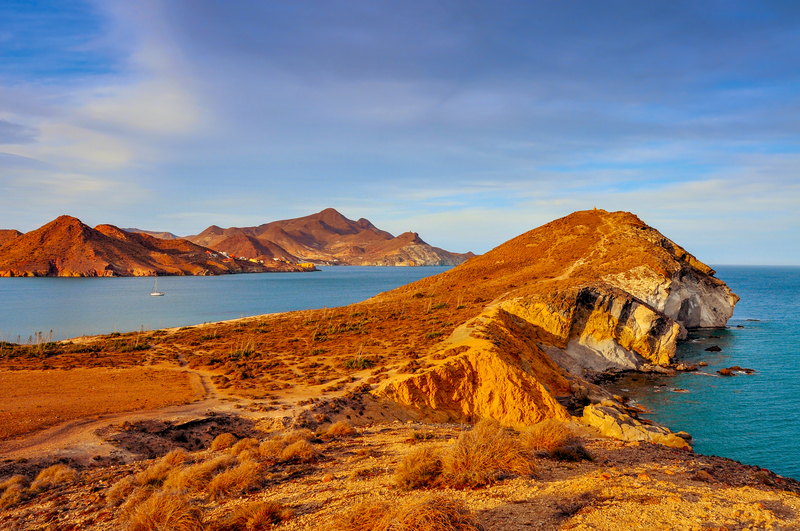A grim picture is emerging in the Cabo de Gata-Níjar Natural Park in Almería, one of the most valuable ecosystems in the Mediterranean. As Spain battles a severe fire season, a silent environmental disaster is unfolding here: burned boats, carelessly discarded fuel canisters, and trash are turning pristine coves into a makeshift landfill. Exclusive research documents the alarming destruction of a natural paradise that is on the verge of collapse under the pressure of uncontrolled illegal immigration.
Almería: Epicenter of Illegal Maritime Migration
The coast of Almería has become the main arrival point for illegal immigration by sea to the Iberian Peninsula in recent years. The numbers speak for themselves: between 2019 and 2024, over 2,300 boats carrying more than 30,000 illegal immigrants reached its shores. This trend is unbroken, with thousands of arrivals each year. Forecasts for 2025 suggest this influx will continue, further increasing the pressure on the region.
Burned Boats and Toxic Waste: A Ticking Time Bomb
The consequences of this development are visible in the heart of the natural park. In picturesque coves like Bergantín or Playa de los Muertos, the wrecks of abandoned and often burned boats are accumulating. Among them are drug boats, so-called “narcolanchas,” used by criminal networks that intertwine human smuggling with drug trafficking. To erase evidence, these boats are frequently set on fire. This process releases highly toxic substances into the soil and sea, threatening the precious Posidonia seagrass meadows—vital for marine biodiversity—and over a thousand endemic plant species in the park.
Extreme Fire Hazard from Fuel Canisters
A particularly acute danger comes from the discarded 25-liter fuel canisters, known as “petacas.” These canisters, carelessly thrown away on beaches and the seabed, contain fuel residue. They not only pollute the environment and contribute to the formation of microplastics in the Mediterranean but also pose a significant fire risk. In a year like 2025, marked by extreme drought and devastating wildfires across Spain, these canisters could act as accelerants, potentially setting an already vulnerable ecosystem ablaze.
A Political Contradiction with Ecological Consequences
The situation in Cabo de Gata reveals a profound contradiction in current policy. While progressive sectors advocate for a humanitarian immigration policy without strict controls and simultaneously champion climate protection, these two positions collide in reality. How can an open-door policy be reconciled with the protection of unique natural landscapes when illegal immigration leaves a legacy of environmental pollution and extreme fire risk? It is time to reassess priorities. Tightening border controls, closer cooperation with countries of origin, and consistent deportations are crucial not only for managing migration but also for preserving natural treasures like Cabo de Gata.




